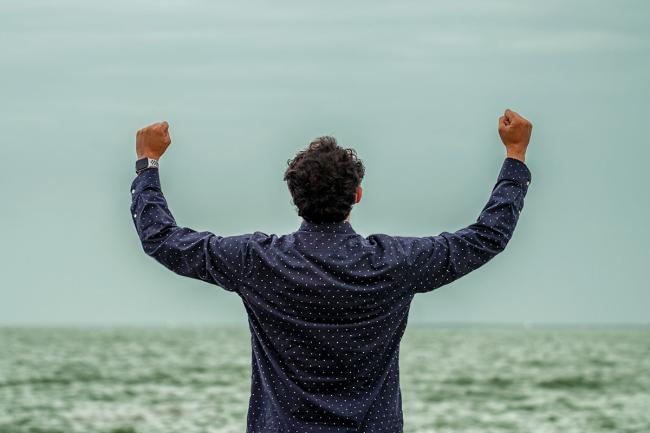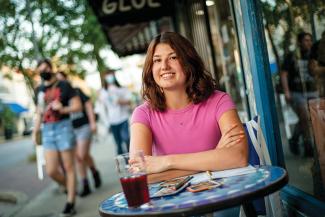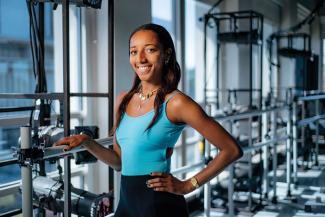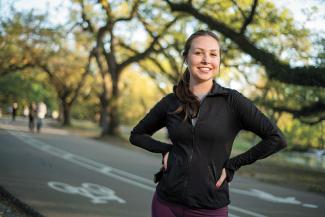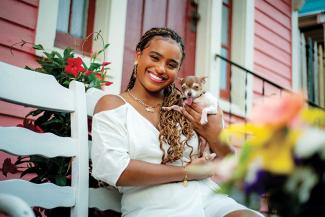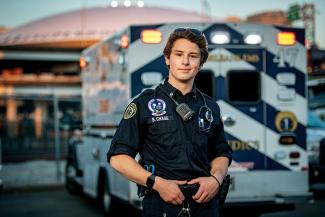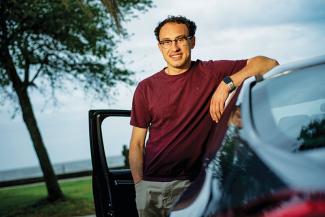Watch the Tulane 2022 student spotlights here.
Above: Happy to graduate! Beau Goodreaux looks out on Lake Pontchartrain. (Photography by Paula Burch-Celentano)
After Tulane sent students home and shifted all classes online in March 2020, Beau Goodreaux drove around the North Shore of Lake Pontchartrain, sometimes as far as Bogalusa, for a change of scenery and a break from screen time.
When Goodreaux and other members of the Class of ’22 began their academic journey at Tulane in fall 2018, their path appeared straightforward. But then SARS-CoV-2, the virus that causes COVID-19, upended the world during the second semester of their sophomore year. At the time, Goodreaux had no idea how much his final years at Tulane would be transformed because of the COVID-19 pandemic.
“I thought it would be like hurricane season,” said Goodreaux, who is from Covington. A cell and molecular biology major who earned a Bachelor of Science from the School of Science and Engineering, Goodreaux assumed, “We’ll get a couple weeks off from school. We’ll be online until May. We’ll back to normal in August, and everything will be fine.”
Waiting for Things to Get Better
Katie Elder, who received a Bachelor of Arts with a double major in international relations and Russian from the School of Liberal Arts, is from South Carolina. She said that the week that students moved out of residence halls was surprisingly a bonding experience. “It ended up being one of my most fun weeks of college,” she said.
“We were in denial about what was happening. We were packing up, and we didn’t have classes. But then we all got home, and that’s when it hit for me,” she said.
The unknown was hard.
Caroline Richter, in the dual-degree Altman Scholar program, earned a Bachelor of Science in Management in finance from the A. B. Freeman School of Business and a Bachelor of Arts in political economy from the School of Liberal Arts. She said the first few months of the pandemic felt like a “pause” on regular life.
“I had no routine and I had nowhere that I needed to be. It was a purgatory for a while,” Richter said.


